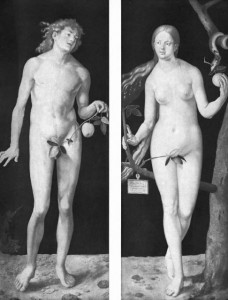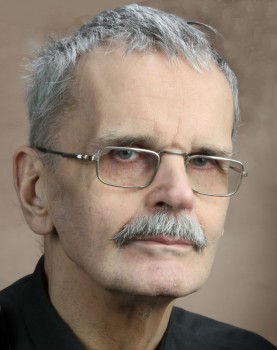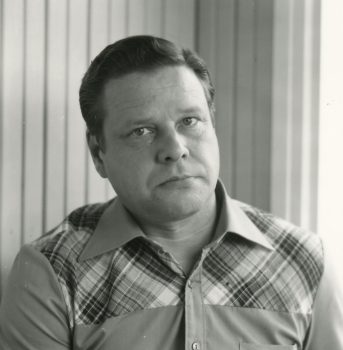Search results for "2010/02/2011/04/2009/10/writing-and-power"
Timeless time
30 December 2005 | Fiction, poetry
Poems from Jumala saalistaa öisin eli Jobin kirjaan meidän on aina palaaminen. Osittain kursivoituja runoja (‘God hunts at night, or, we shall always return to the Book of Job. Partly italicised poems’, Otava, 2005)
Greek delights
I eat Giorgios D. Haniotis'
small joys
buried in powdered sugar,
vanilla, rose petal and strawberry,
as if wooing his three daughters,
reading Angelos Sikelianos' poem
'A country wedding':
and it is a beautiful blue day, Sunday,
the strange charm of Greek letters: i kiriaki,
hazelnut kernels dipped in thyme honey,
white herb ashes from the roadside,
a cigarette taste deep as sin,
tobacco smoke the only haze one can stand looking at,
a little quarrelsome noise, bus station flu,
promises made by Turks,
the threadbare pile carpet of the entrance hall as a word of honor, More…
He came in through the bathroom window
30 June 1991 | Archives online, Fiction, Prose
A short story from Utslag och andra noveller (‘Rash and other stories’, Alba, 1989). Introduction by Pekka Tarkka
He heard a voice behind him:
‘Hey, Aspelin, what are you doing here?’
Awakening from a half-sleep, he looked around as Ilpo approached his seat.
‘I work near here. I’m teaching math to the visually impaired.’
Ilpo sat down next to him. For several seconds they sat without speaking. Then Aspelin collected himself.
‘And you?’
‘Visiting a friend. He lives in Mäkkylä.’ More…
What grade is your kid in?
29 October 2010 | Non-fiction, Tales of a journalist
Should a journalist show his hand? Columnist Jyrki Lehtola ponders the pros and cons of showing one’s true political colours
What’s the best way to present an initiative that would get the cynical, lazy news media to take an interest in the outside world?
The easiest way is to make a proposal in which the outside world is actually defined as the news media itself.
This is exactly what Matti Apunen did early this autumn: Apunen, a long-time journalist and the former editor-in-chief of the Aamulehti newspaper, had just left the paper to lobby for Finnish industry and trade interests as director of the Finnish Business and Policy Forum EVA.
He presented the Finnish media with a straw poll, following the Swedish model, in which reporters would anonymously answer questions about their political leanings. More…
Boys Own, Girls Own? –
Gender, sex and identity
30 December 2008 | Essays, Non-fiction

Knowing good and evil: Adam and Eve (Albrecht Dürer, 1507)
In Finnish fiction of the present decade, both in poetry and in prose, there seems to be at least one principle that cuts across all genres: an overt expression of gender, writes the critic Mervi Kantokorpi in her essay
Relationships and family have always been central concerns of literature; questions about gender and individual identity have received a new emphasis in Finnish literature from one season to the next. The gender roles represented in contemporary literature appear to become ever more stereotypical. The question is no longer only of the author consciously setting his or her gender up as the starting point for expression, as has already long been the case with modern literature written by women. More…
Among the ice floes
30 September 1985 | Archives online, Fiction, Prose

Alpo Ruuth. Photo: Sakari Majantie / Tammi
Alpo Ruuth came across the diary of a member of the Finnish crew of ten men in the Whitbread Round-the-World sailboat race of 1981-1982, and Ruuth, a sailor himself, used that diary as the basis for his novel, 158 vuorokautta (‘158 days’, 1983). It is the story of a great adventure which takes place with the help of ultra-modern equipment and yet involves confrontation with elemental nature, the dangerous power of the southern seas. Ruuth does not use the actual names of the crew, but has taken the view of the fictional crew member who is able to offer ironic comments on what he observes. The book portrays the relationships among the crew under the cramped and difficult conditions of the long voyage. As the extract begins the yacht is in the Southern Ocean, close to the Antarctic coast, making its way towards Auckland, New Zealand.
An extract from 158 vuorokautta (‘158 days’)
Around noon we run into a blizzard. On deck they shout down that a wind has got up. Below, we wake hurriedly from our afternoon naps and start pulling on clothes against the tough weather outside. It’s quite a business in our cramped quarters, and every now and then someone loses his footing and falls as the boat pitches. Cursing is the only medicine for bruises. One by one the boys go up to help change sails; at the bottom of the steps there are excesses of politeness: after you, sir; no no, after you. Up they go, all the same. More…
Time walks slowly
30 June 2002 | Fiction, poetry
When Eira Stenberg (born 1943) began writing in the heat of of Africa, her pen sank into the paper like a tattooing needle into the skin, she says. Her experiences there are alive in her book of poems entitled Siksi seurustelen varkaiden kanssa (‘That’s why I consort with thieves’, Tammi, 2002)
The journey
Wheels clattering, landscape speeding by the window to the past
notebook on lap she understood the journey’s essence,
that it’s a lap she lost in early childhood
when she stood up and set off walking
away from the arms that had carried her from room to room
giving views from on high as if from a mountain:
the apparitions of things, the furnishings, the tints of pictures
and the bedroom mirror they arrived in,
mother and a child, a holy image she met
again in churches and on altars everywhere
as if it were the purpose of the journey: More…





